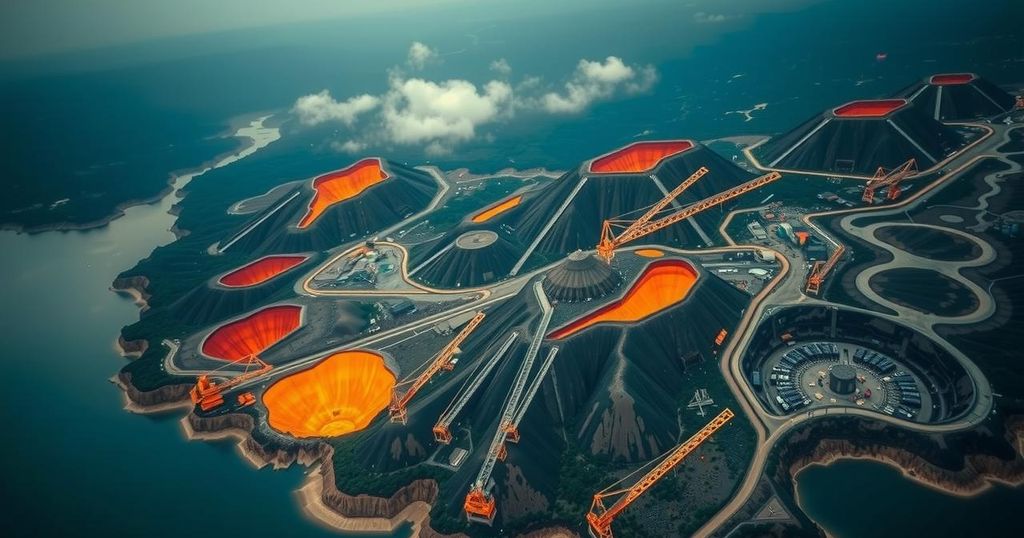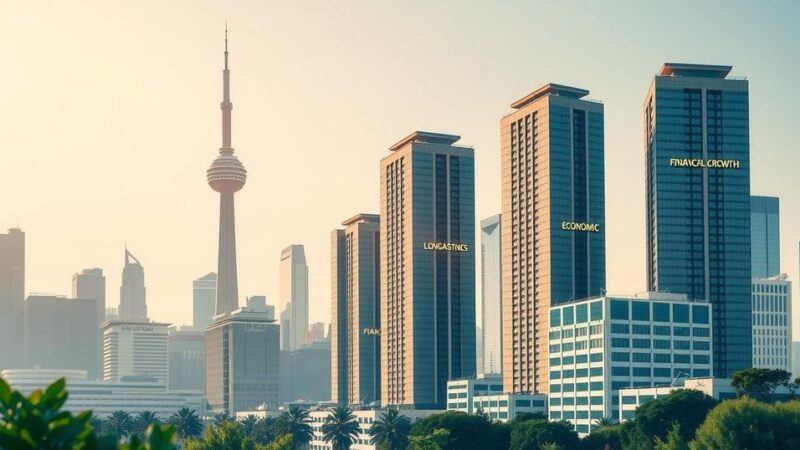In eastern DR Congo, particularly Kitutu, illegal gold mining by Chinese firms has caused significant environmental damage and economic exploitation. Local advocacy led by Italian priest Davide Marcheselli highlights the challenges faced by communities against powerful mining interests. In response to the crisis, the provincial governor, Jean-Jacques Purusi, has suspended illegal mining activities to enforce compliance with mining laws. However, the partnership dynamics between Chinese companies and local cooperatives complicate regulations, while the Congolese government struggles with monopoly enforcement and black market issues.
In the eastern region of the Democratic Republic of Congo, particularly in the town of Kitutu, illegal gold mining activities have escalated, predominantly involving Chinese companies. This has raised considerable alarm among local communities and civil society organizations. Italian priest Davide Marcheselli has long been an advocate against these operations, asserting that they have resulted in severe environmental degradation, including river pollution and the destruction of agricultural lands. The South Kivu province, rich in minerals, has become a hotspot for foreign gold mining entities, many of which operate without the necessary permits and often fail to declare their profits, as local officials have reported. Notably, the local civil society and churches have been among the few entities to resist the influence of these powerful companies, which reportedly enjoy backing from influential local figures. In July, the governor of South Kivu, Jean-Jacques Purusi, suspended illegal mining activities, mandating compliance with Congolese mining laws, which include the renewal of long-expired permits. The response from mining companies has been overwhelming; the governor noted an influx of firms seeking authorization, far exceeding invitations issued. In nearby Kamituga, artisanal mining continues, predominantly carried out by local cooperatives like Mwenga Force. However, local miners lack the resources and machinery that their Chinese counterparts possess. Although the country’s mining regulations prohibit foreign ownership of small-scale mines, Chinese companies exploit loopholes by partnering with Congolese cooperatives, which complicates governance and oversight of these operations. Despite these challenges, the Congolese government has taken action to regulate the sector, granting a monopoly on gold exports to the state-owned Primera Gold. This initiative aims to disrupt smuggling routes and curb illegal exports to neighboring countries like Rwanda. Yet, Primera Gold currently faces liquidity issues, hindered in its efforts to control the black market for gold. The existing channels through which Chinese companies operate remain elusive to local authorities, raising further questions regarding accountability within this lucrative sector. Governor Purusi highlighted the difficulties faced when attempting to communicate with these businesses, often being directed to generalized contacts rather than having substantive discussions.
The situation in eastern Democratic Republic of Congo reflects a broader issue involving foreign exploitation of local resources, particularly by Chinese mining firms. The region is rich in mineral resources that have attracted numerous foreign companies, leading to environmental, economic, and social challenges. Local governance structures have been ineffective in regulating these companies, compounded by widespread corruption and the difficulty of enforcing mining laws. The involvement of local cooperatives adds another layer of complexity, as these entities sometimes unwittingly participate in arrangements that enable foreign companies to circumvent regulations. The Congolese government has tried to address these issues by implementing new regulations, but the effectiveness of these measures remains questionable.
The situation of gold mining in eastern Democratic Republic of Congo exemplifies the conflicting interests between local communities, environmental sustainability, and foreign corporate ambitions. Despite efforts by local leaders and the government to enforce regulations and combat illegal mining, the pervasive influence of Chinese companies continues to pose significant challenges for governance and environmental preservation. The need for greater transparency, accountability, and support for local miners is urgent to protect the region’s resources and communities.
Original Source: www.rfi.fr






